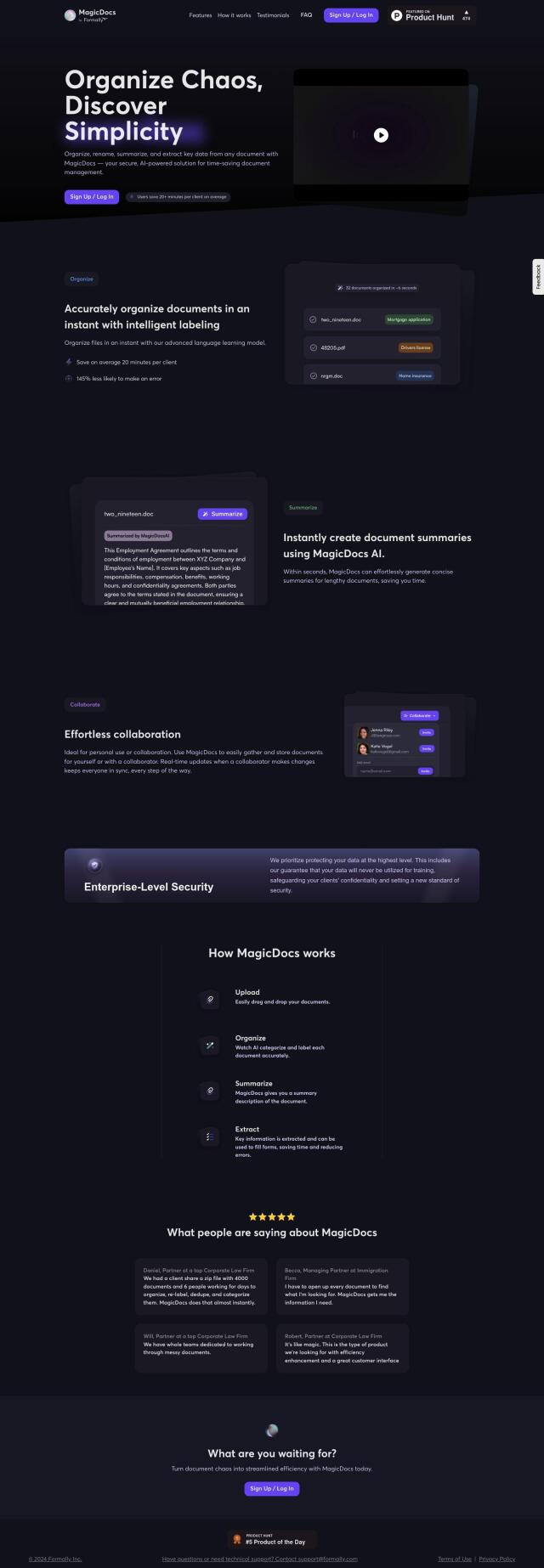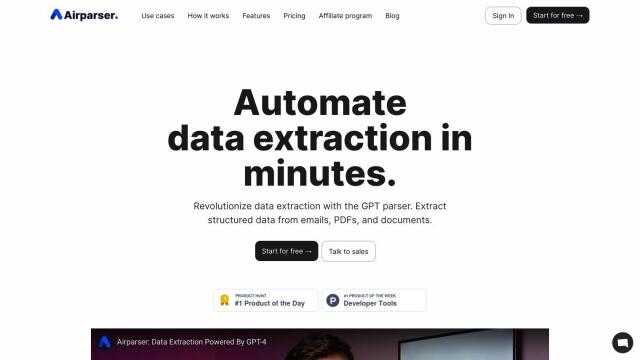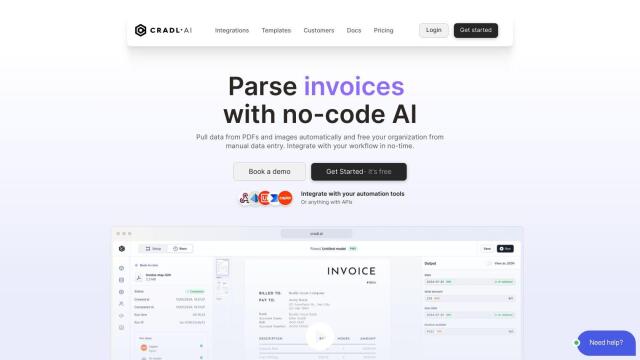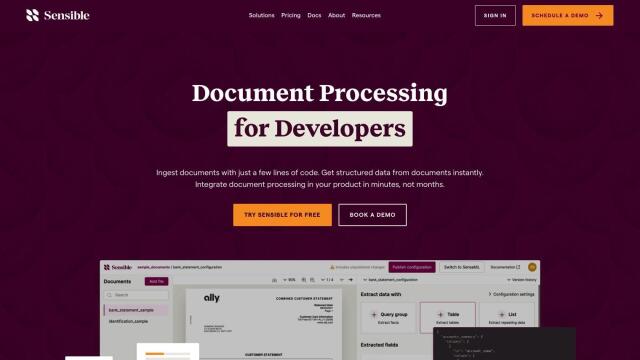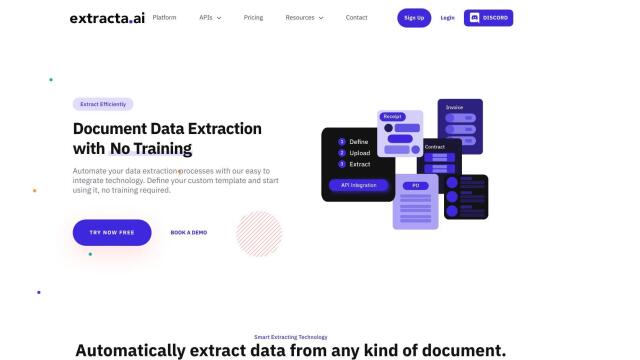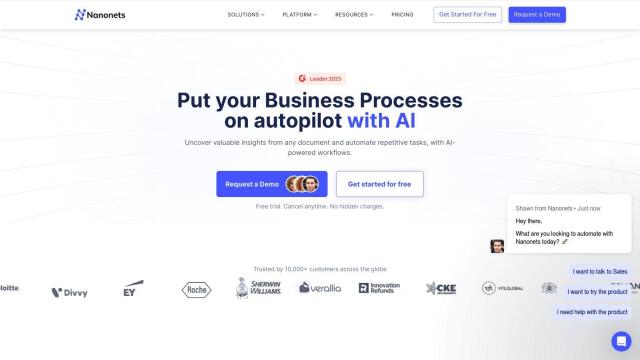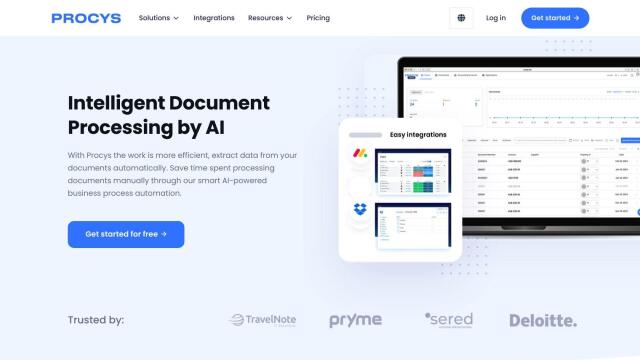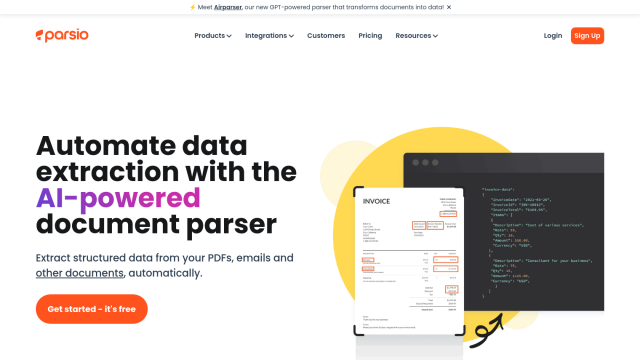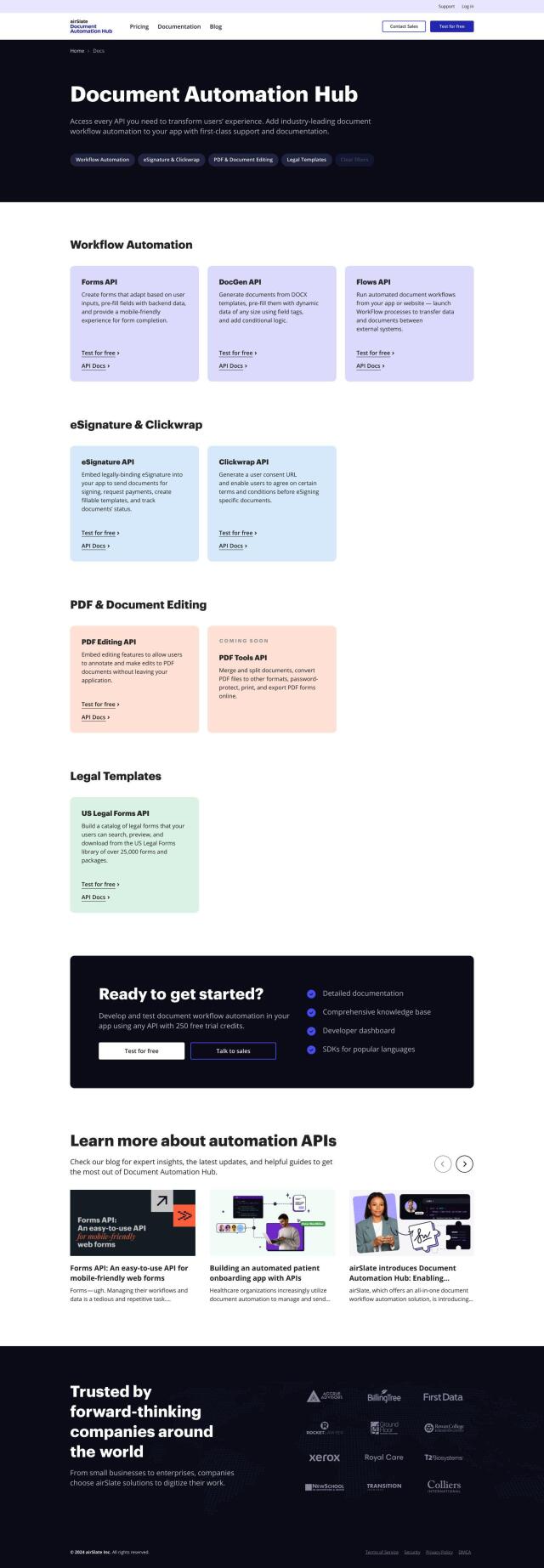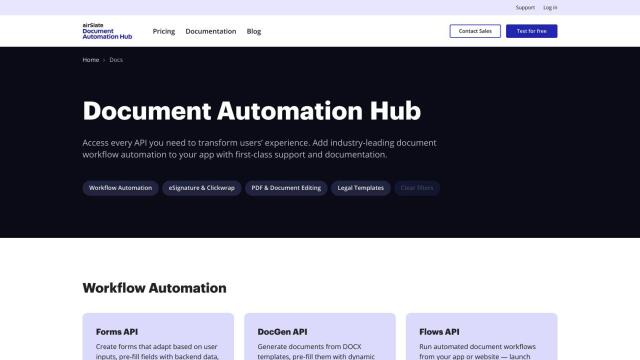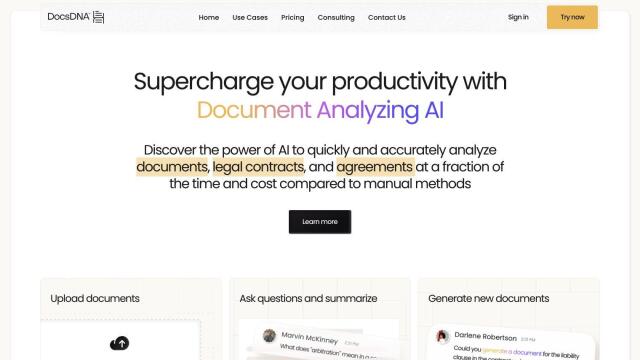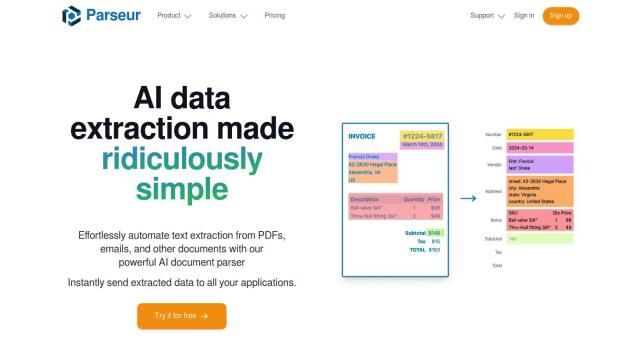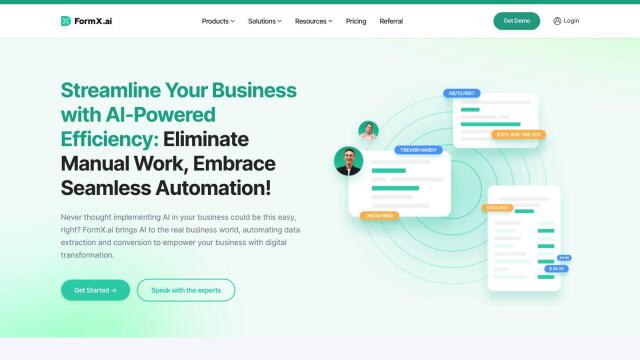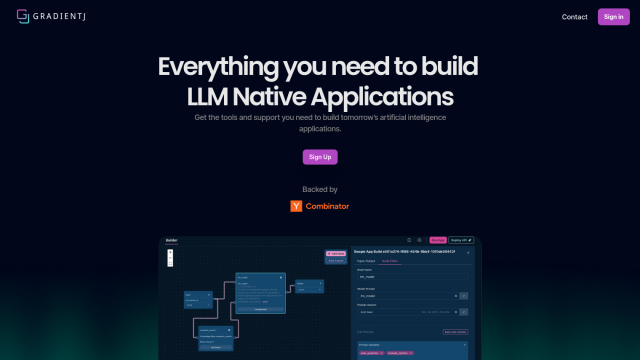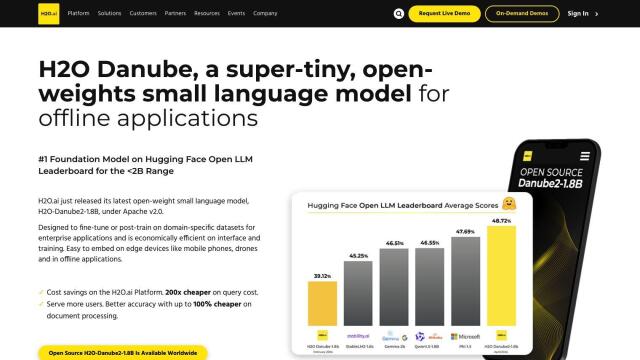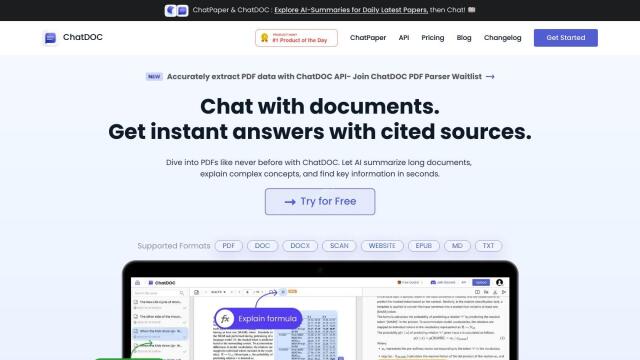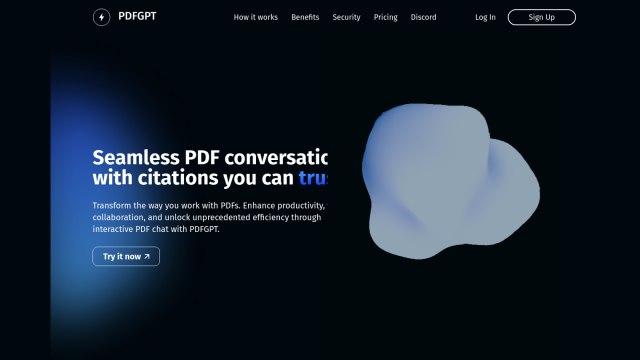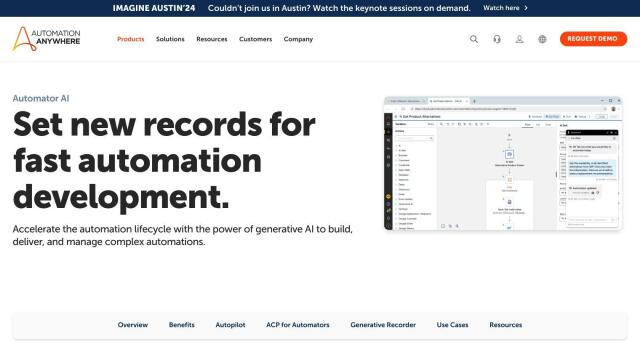Question: How can I automate the processing of handwritten documents and correct errors quickly and accurately?


Gilio
One serious contender is Gilio. The platform uses LLMs and other technology like visual processing to take in documents, extract and transform the structured information they contain, and handle handwritten documents. It can handle PDF and JPEG files, and its API-first design lets developers integrate it with their own systems. Transformations can be customized, and it's designed to scale on AWS with a security model that's customizable too. That makes it a good option for developers or businesses that want to automate document processing without a lot of hassle.


ABBYY
Another serious contender is ABBYY. ABBYY uses AI, NLP and OCR to automate intelligent document processing, with high recognition accuracy and support for a variety of document formats and languages. Its marketplace lets you create custom-built AI models and integrate with Robotic Automation, which can handle complex fields and offer insights. It's geared for automating document-heavy processes like accounts payable and customer onboarding, and it's used by more than 10,000 companies.
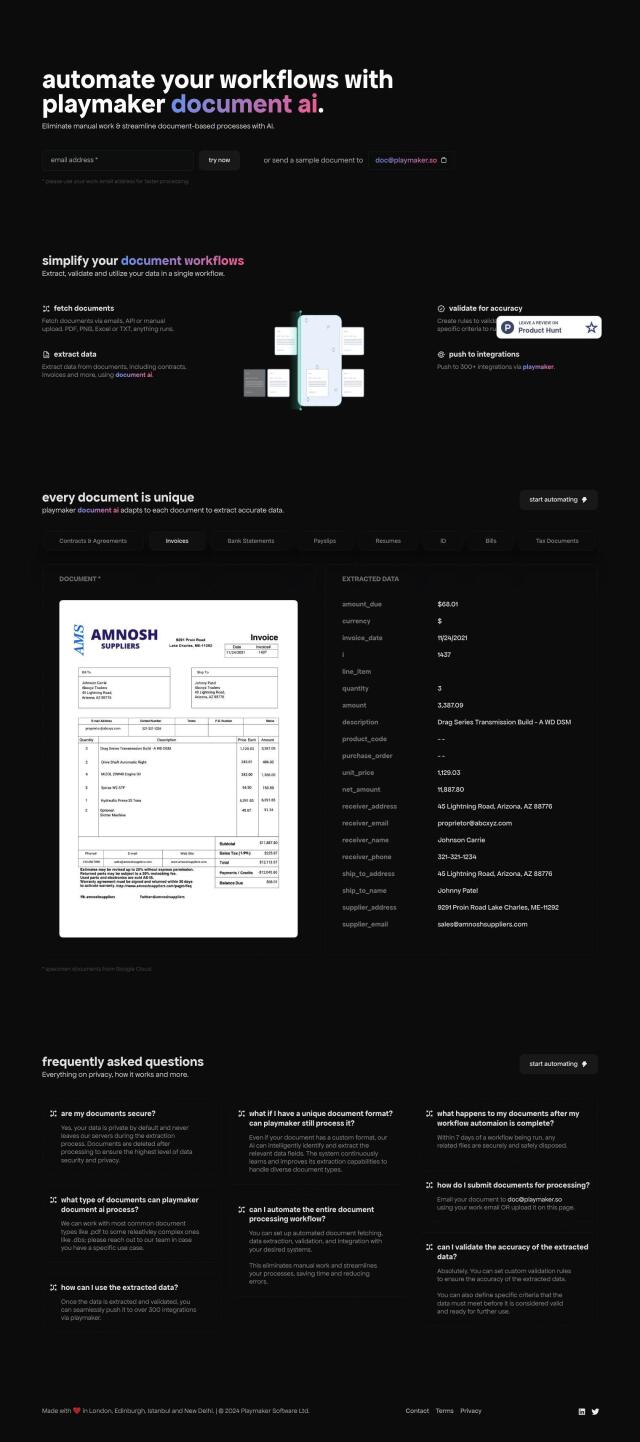
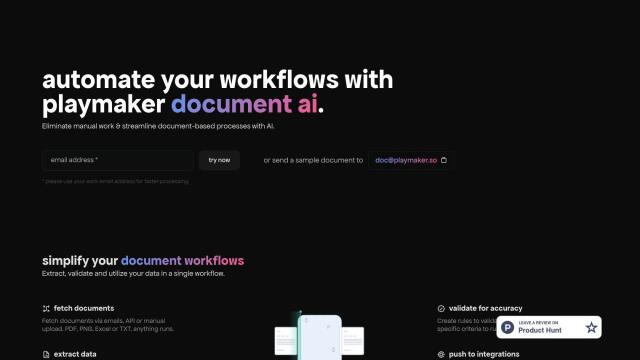
Document AI
If you're more focused on data validation, you might prefer Document AI from Playmaker. It uses AI to extract, validate and use data in documents, including handwritten documents. It can handle a variety of file formats and can retrieve documents by email, API or manual upload. Document AI validates the extracted data with custom rules, and it can integrate with more than 300 applications, so it's a good option for automating workflows and reducing errors in document processing.
